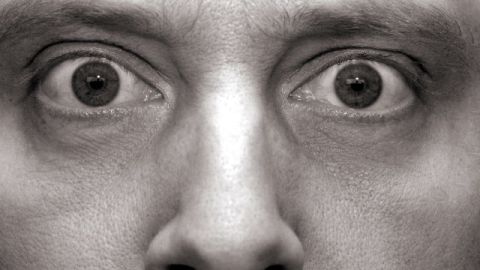Partying Like It’s 1984?

As the impressive scope of the NSA surveillance operation known as PRISM comes to light, smart people in the blogosphere are divided about how up in arms we ought to be. Glenn Greenwald, the journalist who broke the story in the Guardian, charges that the United States “wants to destroy privacy worldwide.” He thinks spying on our calls and web activity is a very big deal. By contrast, Andrew Sullivan calls Greenwald’s perspective “self-righteous indignation” —“a lot of this is bullshit,” he declares. To dampen our hysteria, Sullivan recommends the perspective of David Simon, creator of “The Wire,” who takes ironic comfort in how massively sweeping the surveillance is:
When the government grabs every single fucking telephone call made from the United States over a period of months and years, it is not a prelude to monitoring anything in particular. Why not? Because that is tens of billions of phone calls and for the love of god, how many agents do you think the FBI has? How many computer-runs do you think the NSA can do — and then specifically analyze and assess each result? When the government asks for something, it is notable to wonder what they are seeking and for what purpose. When they ask for everything, it is not for specific snooping or violations of civil rights, but rather a data base that is being maintained as an investigative tool.
This week’s revelations also give Simon cause to cheer the effectiveness of the agencies looking out for our security:
Frankly, I’m a bit amazed that the NSA and FBI have their shit together enough to be consistently doing what they should be doing with the vast big-data stream of electronic communication. For us, now — years into this war-footing and this legal dynamic — to loudly proclaim our indignation at the maintenance of an essential and comprehensive investigative database while at the same time insisting on a proactive response to the inevitable attempts at terrorism is as childish as it is obtuse. We want cake, we want to eat it, and we want to stay skinny and never puke up a thing. Of course we do.
I could really do without the bulemia imagery, but Simon’s point is worth contemplating, even given the fact that terrorism takes so many fewer lives than ordinary gun violence. A lot of people I know are unsurprised and relatively unperturbed by the news that the government is monitoring our communications. I wouldn’t say I’m as blase about the news as Sullivan, but my initial take is not to conclude I’m living in a Big Brother-led dystopia.
Still, thinking back on Orwell’s novel, there is a pretty striking resemblance to current events. Read the following passage from early in the book, substituting Edward Snowden (the source of the leak who fessed up over the weekend) for Emmanuel Goldstein and Hong Kong (Snowden’s not-so-smart hiding spot) for Oceania:
As usual, the face of Emmanuel Goldstein, the Enemy of the People, had flashed on to the screen. There were hisses here and there among the audience. The little sandy-haired woman gave a squeak of mingled fear and disgust. Goldstein was the renegade and backslider who once, long ago (how long ago, nobody quite remembered), had been one of the leading figures of the Party, almost on a level with Big Brother himself, and then had engaged in counter-revolutionary activities, had been condemned to death, and had mysteriously escaped and disappeared. The programmes of the Two Minutes Hate varied from day to day, but there was none in which Goldstein was not the principal figure. He was the primal traitor, the earliest defiler of the Party’s purity. All subsequent crimes against the Party, all treacheries, acts of sabotage, heresies, deviations, sprang directly out of his teaching. Somewhere or other he was still alive and hatching his conspiracies: perhaps somewhere beyond the sea, under the protection of his foreign paymasters, perhaps even–so it was occasionally rumoured–in some hiding-place in Oceania itself.
I think we’re a pretty long way from the present day to Orwell’s dystopian nightmare. More than that, I’m not persuaded, yet, that we’re embarking on a slippery slope toward thoughtcrimes and such. Maybe I’m naive, but I have more faith in our leaders and in the ruggedness of our constitutional system to think that this is the beginning of the end.





